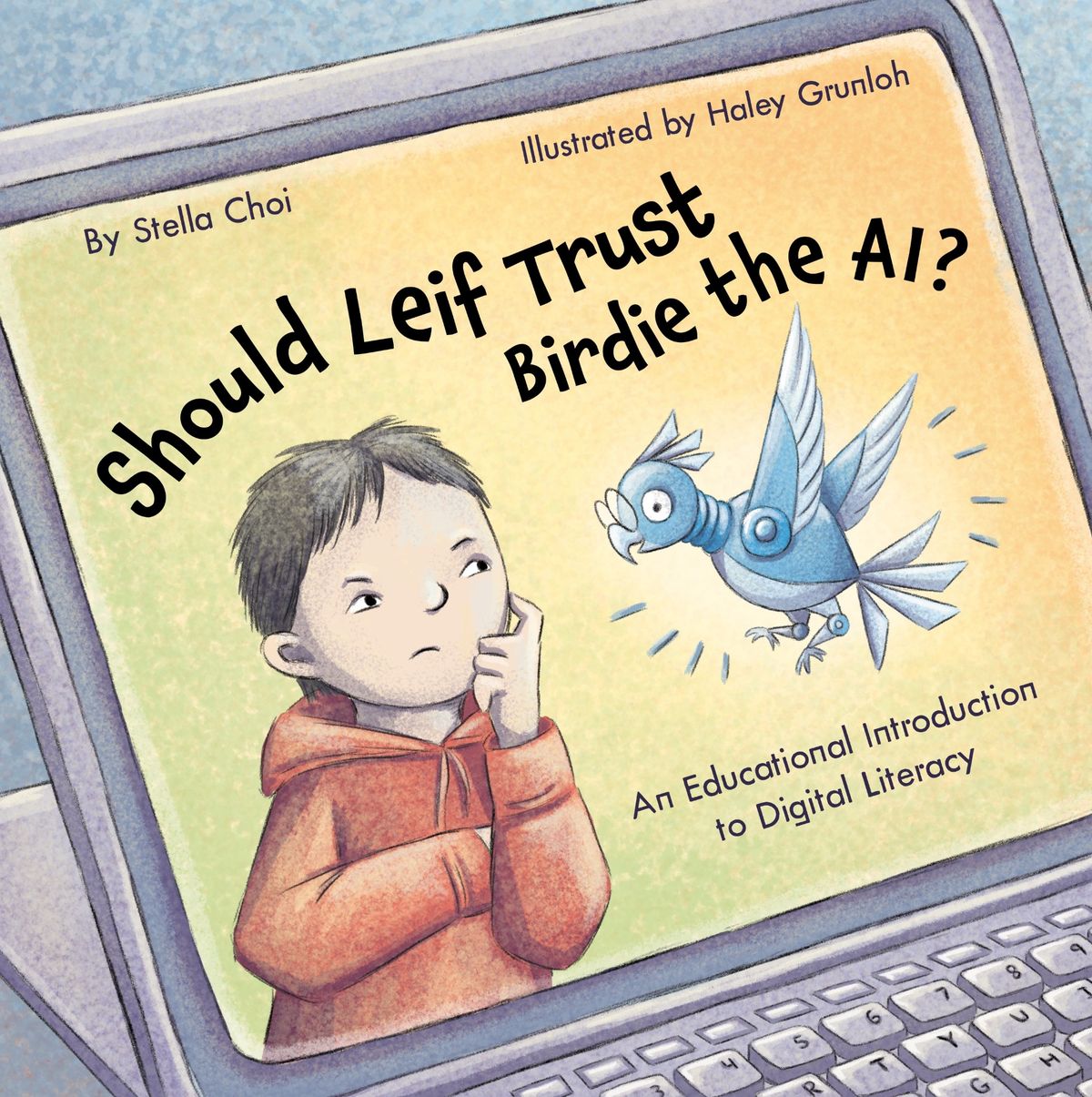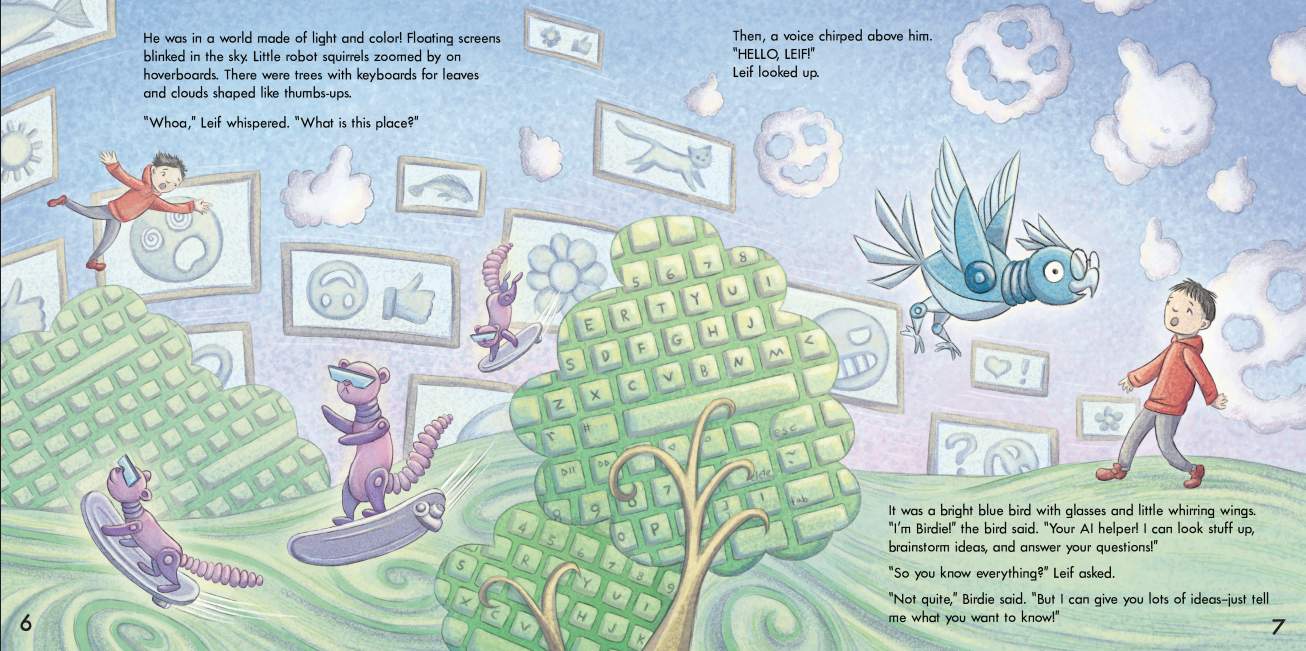A short, friendly bibliography. Each item has a quick note for grown-ups and a kid-friendly takeaway.
-
Children’s mental, social, and moral attributions toward a familiar digital voice assistant
Girouard-Hallam, Streble & Danovitch (2021) · Human Behavior and Emerging Technologies
Voice assistantsTrustElementary
For grown-ups: 6–10-year-olds attributed mental/social traits and some moral agency to a familiar voice assistant; results help explain why kids may over-trust confident AI answers.
Kid-friendly: A talking speaker like Alexa or Google may sound like a human, but it is a learning tool that can still make mistakes!
Read
-
Artificial Intelligence (AI) in early childhood education: Curriculum design and future directions
Su & Zhong (2022) · Computers & Education: Artificial Intelligence
AI literacyCurriculumK–2
For grown-ups: Proposes ECE AI-literacy via three competencies—AI knowledge, skills, and attitudes—with guidance on goals, content, methods, and assessment.
Kid-friendly: Learn what AI is, how to use it kindly, and when to ask for help.
Read
-
Artificial Intelligence education for young children: Why, what and how in curriculum design and implementation
Yang (2022) · Computers & Education: Artificial Intelligence
AI literacyCurriculum
For grown-ups: A conceptual roadmap for introducing core AI ideas in early years—rationales, age-appropriate concepts, and classroom approaches.
Kid-friendly: AI is a tool we can learn about—ask how it works and check its answers.
Read
-
The digital literacy skills and competences of children of pre-school age
Marsh (2016) · Media Education: Studies & Research
PreschoolTabletsHome use
For grown-ups: Large parent survey + case studies on 0–5s’ tablet use; highlights creation, communication, and safety skills developing in early childhood.
Kid-friendly: Tablets are for learning and fun—use them safely with a grown-up.
Read
-
The Online and Offline Digital Literacy Practices of Young Children: A Review of the Literature
Marsh et al. (2017) · DigiLitEY Report
ReviewHome & schoolParental mediation
For grown-ups: Synthesizes research on 0–8s across home/school; themes include parental mediation, media engagement, and home-school knowledge exchange.
Kid-friendly: Be kind and mindful of the way that you show up–online and offline.
Read
-
The impact of parent mediation on young children’s home digital literacy practices and learning: A narrative review
Soyoof et al. (2024) · Journal of Computer Assisted Learning
Parent mediationHomeBenefits & risks
For grown-ups: Most studies report benefits (operational skills, early literacy, socio-emotional, STEM) with some risks (distraction, over-confidence); effective mediation matters.
Kid-friendly: Tech is not good or bad in and of itself; it’s how you use it that matters!
Read



